Customer Services
Copyright © 2025 Desertcart Holdings Limited
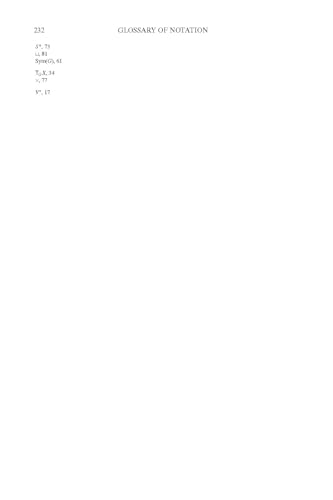


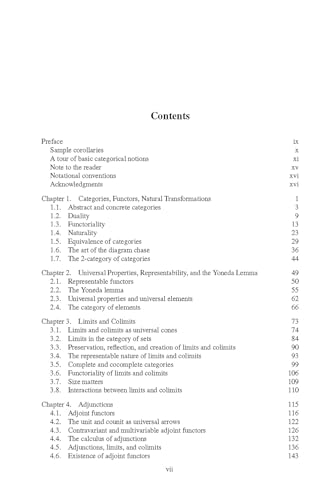
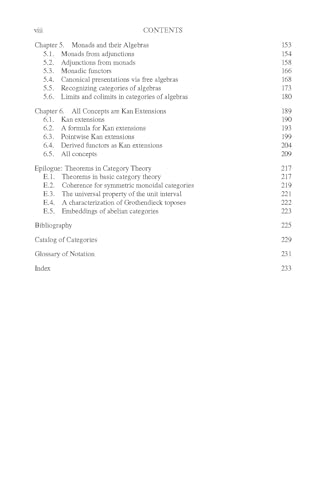
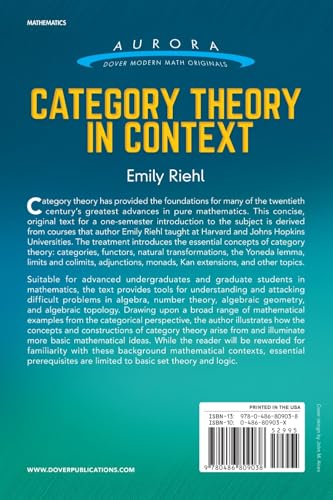
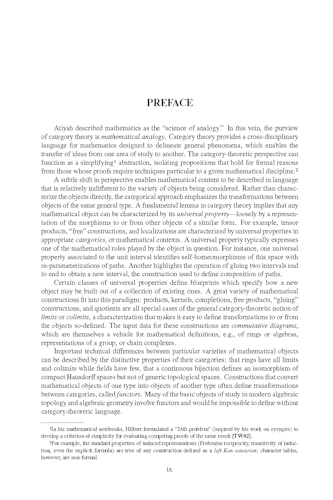
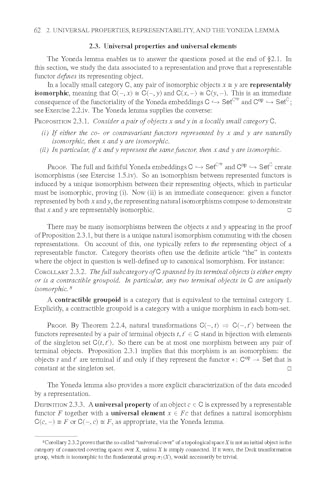












Buy Category Theory in Context (Aurora: Dover Modern Math Originals) on desertcart.com ✓ FREE SHIPPING on qualified orders Review: Excellent but very challenging for the beginner - I returned to this book after some time passed and I appreciate it more. First of all, it wasn't all that hard to eventually fill in the gaps and be able to use the book. Second, ChatGPT and other LLMs are now available for interactively filling in gaps, and self-contained introductions seem less important now than they did a few years ago. After getting past my initial difficulties, I can also appreciate that the author's contextualization of the material with quotations, hints, and footnotes and the choice of references is very well considered and useful. This is how I felt initially (original review, 4 stars): I'm using this book for self-study and started out reading and working problems as I went along. It didn't work: the book is too difficult as a first text for this purpose. I do think this is a good book, but it's too advanced for a first introduction. There are some statements in the introduction to the effect that few prerequisites are required if you also have some "mathematical maturity". Don't be fooled: this is code for already knowing category theory, and some essential definitions are missing. I recommend that if you are acquiring category theory by self-study you should start with "Category Theory for the Working Mathematician," because that book does define everything with complete clarity. And don't let the title of that book scare you: it is perfectly sufficient for the beginner. Steve Awodey's book "Category Theory" is another good starting point or second reference. Essentially this is the problem: to understand basic category theory you need an unambiguous interpretations of commutative and non-commutative diagrams, abstract categories ("metacategories"), and concrete categories. Then as each auxiliary definition and tool is built up you need to understand its construction unambiguously and in its full generality. These things are all fairly simple. I'm observing that once people understand all of these things together as a "language" they enjoy the experience so much that they immediately forget how to explain the basic definitions to their readers and want to just write category theory at you. And to some extent that is a positive and promising thing. I'm hoping that once I get my basic grounding in category theory and come back to finish reading this book that the more advanced material is presented well enough that I can understand it. I expect that that will be true based on reviews by more advanced readers. Review: Hard Work and Worth It - I had planned to write this review when I finished chapter 2. By that standard, this review is premature. This is the perfect book for rejuvenating a long dormant interest in advanced mathematics. My math is decades old, and long past its best by date, but I am slowly regaining strength. If you want a good grounding in category theory, this text offers incredible value -- if and only if you read carefully and work the exercises. Let me repeat that: to garner the text's incredible value, you must read carefully, take notes, and do the problems -- all of them. I've read 37 pages, and taken 60 double sided pages of notes. This is definitely a book for grown ups. Ms. Riehl treats her readers as peers and extends every possible courtesy. Explanations are clear and complete and peppered with examples. There is an extensive bibliography (which I look forward to exploring when I recover mathematical fitness), and a complete subject index, accompanied by a notation index and an index of categories. I have never before seen an index of notation, and I find it extremely valuable. I wish that all mathematics texts had them. If you decide to take the plunge, I suggest that you include the following in your order: 1. A good mechanical pencil 2. Lots of lead (I find that BB is easy on the hand) 3. A good, sewn in signature notebook. I like this one: https://www.desertcart.com/Grid-Paper-Notebook-Hardcover-Dividers/dp/B072MVXYKS/ref=pd_rhf_ee_s_rp_c_2_0_5/140-5454927-8501868 4: A good eraser. Seriously, you will need it. I like these: https://www.desertcart.com/STAEDTLER-Plastic-Latex-free-Age-resistant-Crumbling/dp/B00006IFAN/ref=sr_1_2 Happy Mathing.

| Best Sellers Rank | #69,475 in Books ( See Top 100 in Books ) #2 in Topology (Books) #3 in Abstract Algebra (Books) #17 in Mathematical Logic |
| Customer Reviews | 4.7 4.7 out of 5 stars (158) |
| Dimensions | 5.91 x 0.59 x 9.06 inches |
| ISBN-10 | 048680903X |
| ISBN-13 | 978-0486809038 |
| Item Weight | 13.5 ounces |
| Language | English |
| Part of series | Aurora: Dover Modern Math Originals |
| Print length | 272 pages |
| Publication date | November 16, 2016 |
| Publisher | Dover Publications |
K**H
Excellent but very challenging for the beginner
I returned to this book after some time passed and I appreciate it more. First of all, it wasn't all that hard to eventually fill in the gaps and be able to use the book. Second, ChatGPT and other LLMs are now available for interactively filling in gaps, and self-contained introductions seem less important now than they did a few years ago. After getting past my initial difficulties, I can also appreciate that the author's contextualization of the material with quotations, hints, and footnotes and the choice of references is very well considered and useful. This is how I felt initially (original review, 4 stars): I'm using this book for self-study and started out reading and working problems as I went along. It didn't work: the book is too difficult as a first text for this purpose. I do think this is a good book, but it's too advanced for a first introduction. There are some statements in the introduction to the effect that few prerequisites are required if you also have some "mathematical maturity". Don't be fooled: this is code for already knowing category theory, and some essential definitions are missing. I recommend that if you are acquiring category theory by self-study you should start with "Category Theory for the Working Mathematician," because that book does define everything with complete clarity. And don't let the title of that book scare you: it is perfectly sufficient for the beginner. Steve Awodey's book "Category Theory" is another good starting point or second reference. Essentially this is the problem: to understand basic category theory you need an unambiguous interpretations of commutative and non-commutative diagrams, abstract categories ("metacategories"), and concrete categories. Then as each auxiliary definition and tool is built up you need to understand its construction unambiguously and in its full generality. These things are all fairly simple. I'm observing that once people understand all of these things together as a "language" they enjoy the experience so much that they immediately forget how to explain the basic definitions to their readers and want to just write category theory at you. And to some extent that is a positive and promising thing. I'm hoping that once I get my basic grounding in category theory and come back to finish reading this book that the more advanced material is presented well enough that I can understand it. I expect that that will be true based on reviews by more advanced readers.
E**Z
Hard Work and Worth It
I had planned to write this review when I finished chapter 2. By that standard, this review is premature. This is the perfect book for rejuvenating a long dormant interest in advanced mathematics. My math is decades old, and long past its best by date, but I am slowly regaining strength. If you want a good grounding in category theory, this text offers incredible value -- if and only if you read carefully and work the exercises. Let me repeat that: to garner the text's incredible value, you must read carefully, take notes, and do the problems -- all of them. I've read 37 pages, and taken 60 double sided pages of notes. This is definitely a book for grown ups. Ms. Riehl treats her readers as peers and extends every possible courtesy. Explanations are clear and complete and peppered with examples. There is an extensive bibliography (which I look forward to exploring when I recover mathematical fitness), and a complete subject index, accompanied by a notation index and an index of categories. I have never before seen an index of notation, and I find it extremely valuable. I wish that all mathematics texts had them. If you decide to take the plunge, I suggest that you include the following in your order: 1. A good mechanical pencil 2. Lots of lead (I find that BB is easy on the hand) 3. A good, sewn in signature notebook. I like this one: https://www.amazon.com/Grid-Paper-Notebook-Hardcover-Dividers/dp/B072MVXYKS/ref=pd_rhf_ee_s_rp_c_2_0_5/140-5454927-8501868 4: A good eraser. Seriously, you will need it. I like these: https://www.amazon.com/STAEDTLER-Plastic-Latex-free-Age-resistant-Crumbling/dp/B00006IFAN/ref=sr_1_2 Happy Mathing.
N**M
Authoritative and enjoyable
Emily Riehl’s “Category Theory in Context” is meticulously structured, systematically and effectively advancing through elementary category theory with a style that is both concise and enjoyable. Historical anecdotes provide color and context, making CTiC a delight to read and work through.
D**E
Great introductory text
I was struggling with the "classic" category theory text by Mac Lane so I decided to give this a try. Much easier to follow and overflowing with examples that help motivate and illustrate the theory. Though I have a math background I found especially helpful that the author also draws connections to computer science as appropriate. The exercises are of appropriate difficulty and are worthwhile since many are components of the main proofs. The decision to present the Yoneda lemma immediately after establishing the basics and before doing limits, I feel is much more sensible than the "classic" order.
K**Y
Gentle guide through abstract nonsense
This is a nice introduction to category theory for mathematicians in branches orthogonal to algebra, such as analysis. As a more analytically bent person, the numerous examples are very helpful for staving off my proclivity to dismiss category theory as “abstract nonsense.” Category theory has become a language of modern mathematics, so I don’t think anyone serious about math can go without some familiarity with it.
W**D
I get smarter every time I touch this book
Best book on category I've read. (I've only read a couple of the "standard" refs). Riehl's intuition for the subject is obvious and much of her presentation seems original (to me) and more illuminating than others I've read. A lot of emphasis is placed on universal properties, which I personally really like. I think this helps to tie everything together into a coherent, deep theory centered around just a few powerful ideas.
C**N
Muy buen libro para profundizar en teoría de categorías, aunque no lo recomendaría para un primer contacto con la materia (Awodey es un buen comienzo). Si bien la impresión no es de buena calidad (bajo gramaje de las hojas), no se puede pedir más por un precio tan bajo. También es de destacar que la autora haya tenido la gentileza de dejar disponible el pdf gratis para descargar desde su página web.
O**N
Recebi hoje 29/04/24. Livro de capa comum, excelente impressão, porém letras são pequenas.
C**.
Es difícil de leer para estudiantes de licenciatura (como yo), pero presenta muchísimos ejemplos y la teoría se expone de manera muy interesante. Varias veces he quedado asombrado por los resultados que aparecen y cómo generalizan conceptos de diferentes ramas de la matemática simultáneamente. Me encanta!
A**T
Riehl always exhibits plenty of examples of mathematical phenomena BEFORE giving the categorical concept that subsumes them all. The effect is that category theory is seen as revelatory. In reponse to the usual saying that "there are no theorems in category theory," she also gives lots of categorical theorems, in other branches of math as well as in category theory itself. A fun and elucidating read!
W**G
Riehl may well be the most talented category theorist of her generation - and as such, could well become one of the more influential mathematicians of the coming decade or so. Category theory is not just the foundation of Mathematics, but the bedrock upon which other foundations can support structures. As we move from a world where Moore's law and classical mechanics dominated our purview to one where quantum physics and quantum information start to directly influence our lives, Category theory will become an essential tool for navigating a synthesis between maths and physics that will become more more enabled than at any time in our past. For one thing, a simulation of even the most basic quantum systems will push the boundaries of what can and cannot be computed. In her recent work Riehl has gone from being a skilled and exciting young mathematician to one who challenges our understanding of the structure of reality, and in this book she exhibits a wonderful and refreshing ability to wear her talent lightly whilst providing a refreshing approach to the context of category theory. The book is not for beginners and it is not easy to read if you have not yet grasped the basics (or the specialised vocabulary). I am a big fan of Tom Leinster who is another category theorist from the maths side, and I am also very keen on Bob Coecke and Bartosz Milewski who approach CT from a different (theoretical physics and computer sciencefor Coecke and programming for Milewski) who I think also display an intuitive understanding of this beautiful subject, but Riehl stands out as the intellectual leader of the pack
Trustpilot
4 days ago
1 month ago